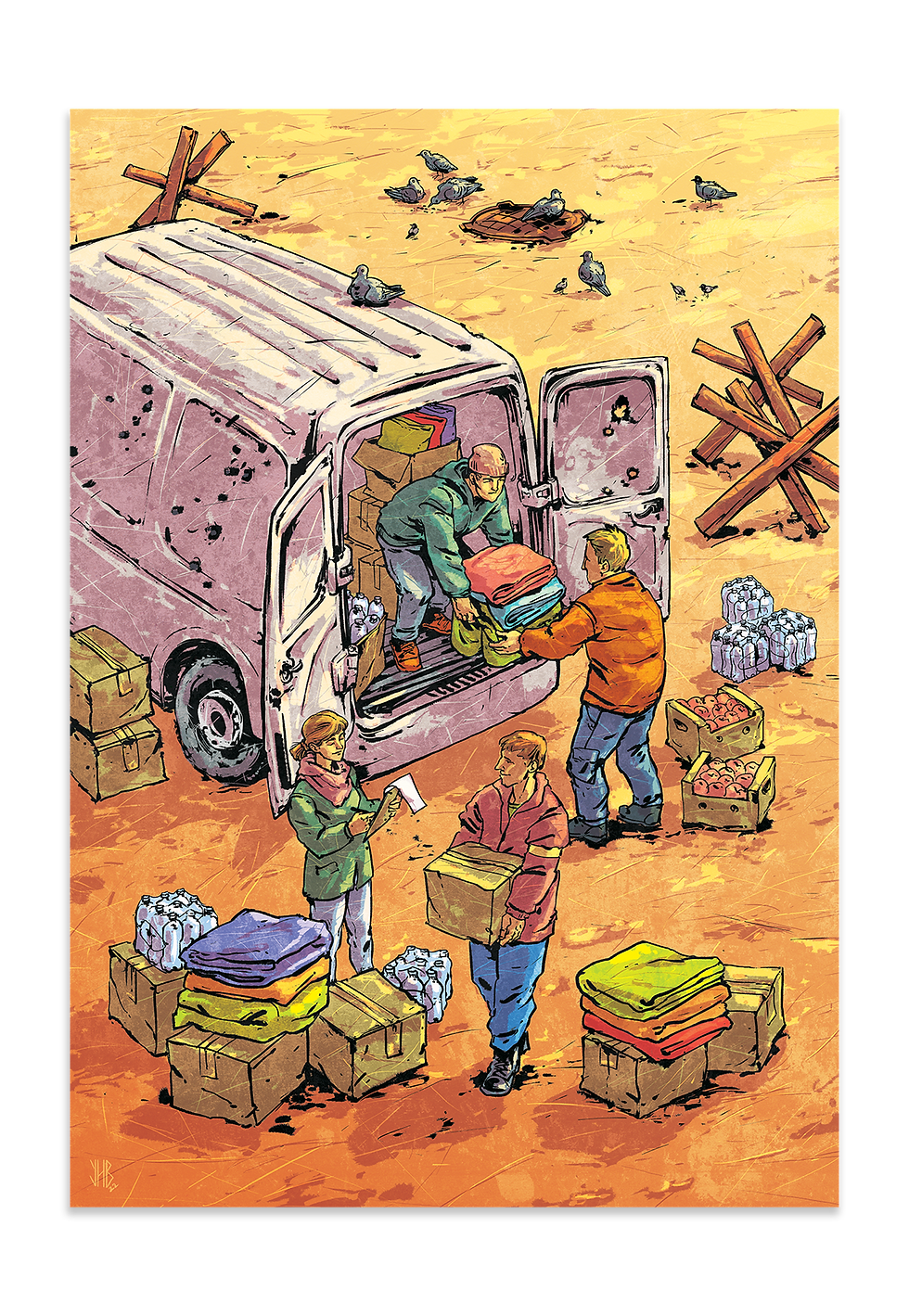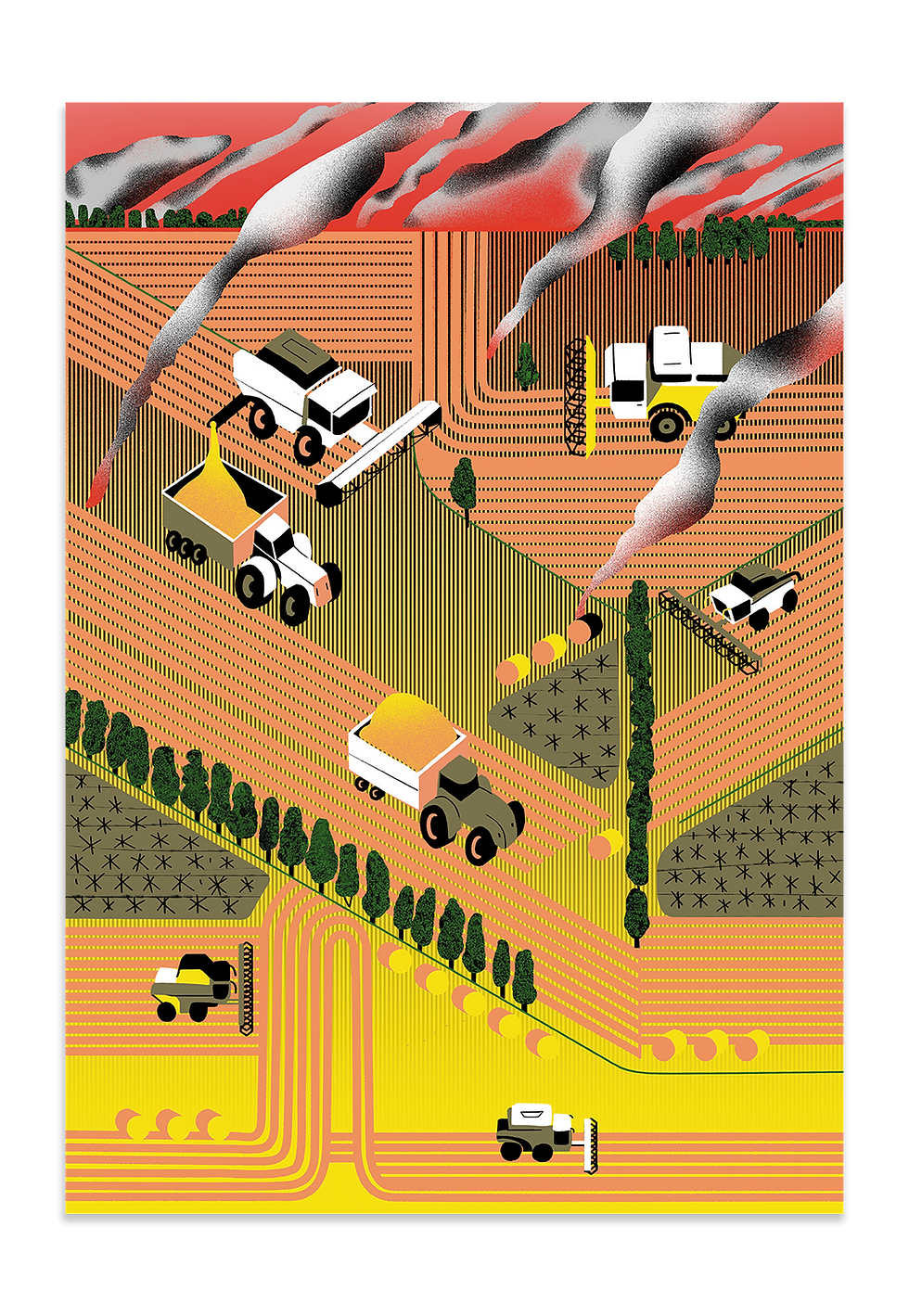Coordinator of the "Child Tracing Service"
- Dec 1, 2022
- 2 min read
Illustration: #OlenaStaranchuk

//
Director, writer and musician Ruslan is used to living life to the fullest, and the Russian full-scale invasion didn’t change his views. In wartime, the volunteer faced an insane number of tasks: helping people in destroyed villages with reconstruction and food, coordinating the search for missing children, collecting money for the Armed Forces. All these are basic things for Ruslan that allow him to stay afloat.
In the first days of the full-scale war, the man helped the people around him: he took care of old people in Kyiv, lined the children's intensive care unit with sandbags to protect them from debris, evacuated people who managed to get out of Bucha and Irpin through the destroyed bridge. Those who needed to recover after the horrors they experienced spent the night in Ruslan's apartment.
After the liberation of Kyiv Oblast from the Russian army, the volunteer began to travel around the villages. At first, he didn’t have any contacts. He walked between the houses, which were still smoking from the shelling hits, and called to people. Some came out of the cellars, talked about problems with food or other things. So Ruslan understood what kind of help was needed, and began purposefully bringing everything necessary. At the same time, he recorded video stories of people in the de-occupied territories and posted them on his social media.
Ruslan tries to maintain a balance in volunteering where he knows and remembers the people he helps. It may be half a hundred people, but the volunteer will keep in touch with them, know what they need and cover their needs every month. For example, he and his friends have already almost repaired the house of one family: they repaired the roof, doors and windows. And when Ruslan delivers food to someone, he sets a reminder when the person will need to replenish supplies.
Another important area where Ruslan works is the search for missing children. With the beginning of the full-scale war, the issue reaches unprecedented scales: 2,000 children are sought. Someone was deported to Russia, someone got lost in the occupied territories or in the war zone. These children are currently more difficult to find. Also, in the first days of the full-scale war, many children crossed the border with the EU on their own, and later their parents couldn’t contact them. Ruslan's organization managed to find these children quite quickly thanks to cooperation with European organizations.




Comments